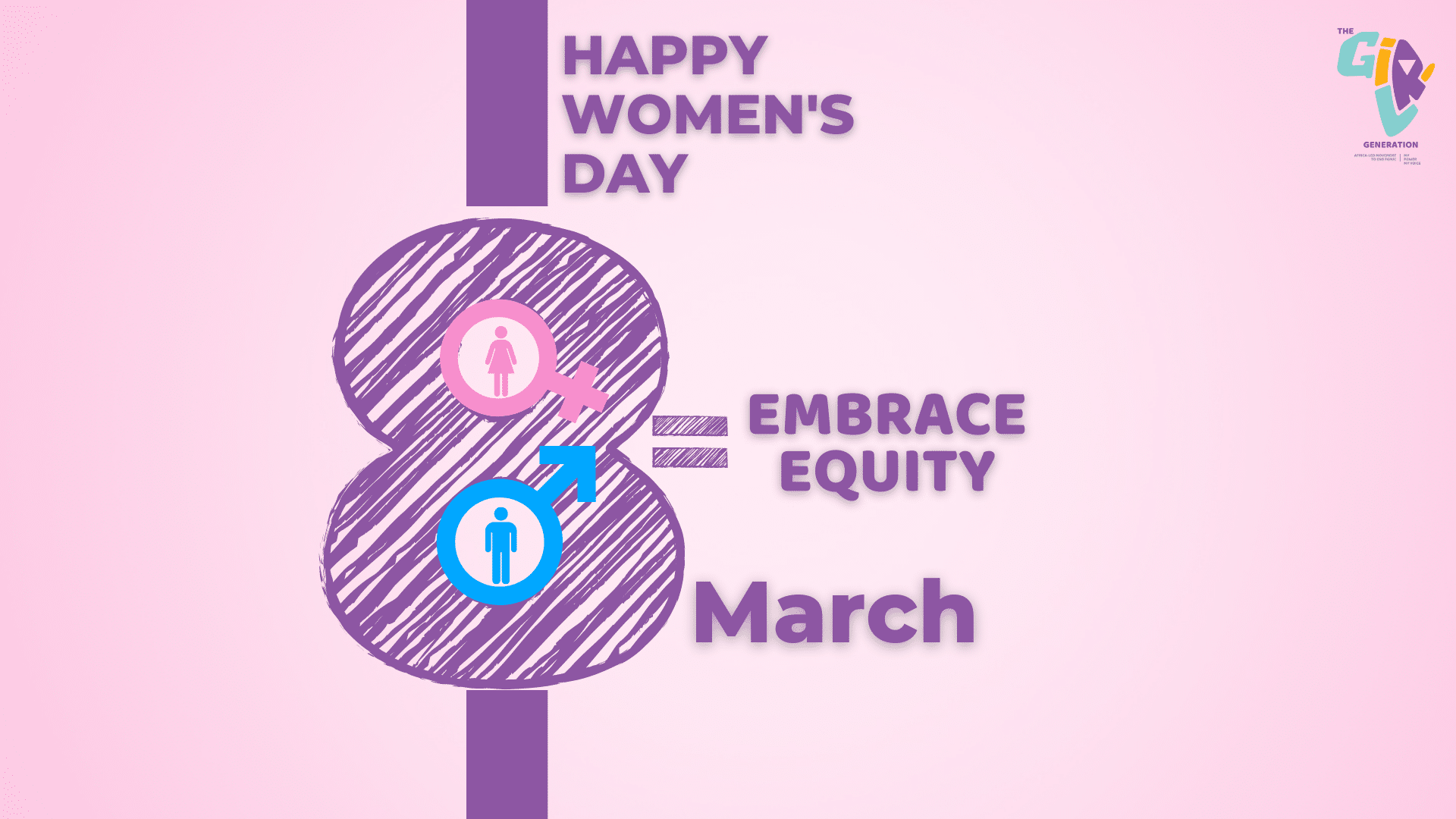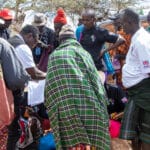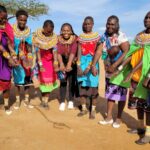This year, The Girl Generation-Support to the Africa-led Movement to End FGM (TGG-ALM) commemorated International Women’s Day through various events.
#CSW67
The Commission on the Status of Women (CSW) is the principal global intergovernmental body exclusively dedicated to the promotion of gender equality and the empowerment of women. A functional commission of the Economic and Social Council (ECOSOC) was established by ECOSOC resolution 11(II) of 21 June 1946.
The sixty-seventh session of the Commission on the Status of Women took place from 6 to 17 March 2023 at the United Nations headquarters in New York.
The Girl Generation: Support to the Africa-Led Movement to End FGM/C Programme (TGG-ALM), through Orchid Project, co-hosted a side event in partnership with the Kenyan Government and UNFPA, The Government of Finland and Thriving Communities Africa on Monday 6th March 2022.
The side event focused on Amplifying Gender Transformative Approaches: Male Engagement and Inclusion in Preventing Violence Against Women and Girls, (VAWG).
Speaking during the side event, Hon. Mrs Dorcas Gachagua, the spouse of the Deputy President of Kenya, noted that lack of opportunities especially in Kenya has seen boys and men more prone to drug and substance abuse, leading to an increase in gender-based violence. “It is true that women and girls deserve to be empowered given the mirage of issues they face. However, as we look into women’s and girls’ empowerment, let’s not forget to give boys and men an opportunity at the table.”

Hon. Gathoni Wa Muchomba, the Member of Parliament for Githinguri and a member of The Kenya Women Parliamentary Association (KEWOPA) was present. She shared gains made towards ending GBV in Kenya including the set-up of a toll-free call center. “A key challenge that remains is lack of forensic tracking evidence systems which has a negative impact on the prosecution of GBV cases.”
Asenath Mwithigah, the CEO of Orchid Project, a consortium partner of The Girl Generation Programme brought out gender inequalities that continue to perpetuate an increase in FGM/C. “FGM/C reflects deep-rooted inequalities between genders and is an extreme form of discrimination against girls and women. The Girl Generation has found ways to meaningfully engage men and boys in the communities that we engage with.”
“There’s a need to increase funding towards ending FGM/C to enable organisations including grass-root organisations to implement and advocate for an end to FGM/C.” She added.
Speaking at the event, Ib Petersen, the Assistant Secretary General, Deputy Executive Director (Management) said “UNFPA engages over 250 men groups towards ending FGM/C in different countries. This has led to an increase in shift of gender norms towards the practice of FGM/C with more men now speaking openly about ending FGM/C.”
“In the past, men and boys have been taught that they cannot show emotions and that violence is part of masculinity. When solving GBV, we must broaden the focus and include boys and men as part of the solution.” Said a Pia Sundal, a representative of Government of Finland in New York.
Wanjiru Wahome, the Executive Director for Samburu Girls Foundation attended CSW67 and had this to say, “I was able to attend various side events during this year’s CSW67. What stood out for me is to hear first-hand from Sierra Leone traditional leaders on their ending on ending FGM/C. In most African countries, FGM/C is part of cultural beliefs and traditional cultural leaders are key in supporting efforts towards eradicating the practice.”
The Girl Generation also called on Member States to formulate policies that include the elimination of FGM/C as an explicit goal in the ICT education sector policies and plans, with appropriate strategies and accountability frameworks. We also called on Member States to prioritise the use of technology for the collection, processing & dissemination of data to inform FGM/C prevention, mitigation, and response interventions. Additionally, we recognize that investments in digital connectivity in rural areas and a reduction in the cost of access to digital products are vital so that FGM/C-related information is accessible to all.
WOW FESTIVAL 2023
Women of the World (WOW) Festival ran a three days festival that included a lineup of world-class speakers, activists and performers joined by thousands to explore the state of gender equality across the globe and tackle the subjects that matter most to women and girls across the world today.
The Girl Generation- Support to the Africa-led Movement, held a panel discussion on Saturday 11 March titled ‘Why girl-centered approaches,’ and sought to engage audiences to recognise the importance of a girl-centered approach in all work around human rights and violence against women and girls.
The Girl Generation-led conversation included Dr Leyla Hussein as chair and young activists from The Girl Generation community who joined as panellists.

“When you say cultural practice, there is nothing cultural about mutilation or sexual assault. It’s violence against women and girls.” said Dr Leyla Hussein as she opened up the floor for the panel discussion.
“In my community, there are no rape or anti-FGM laws. It is believed that when a girl is cut, it’s a religious ritual and that they are saving her. There is a 98% prevalence of FGM/C in Somaliland.” Muna Isse Mahad from the Ministry of Employment, Social Affairs & Family in Somaliland emphasized.
Speaking during the panel discussion Esmael Omar, Head of Policy and Advocacy at The Girl Generation brought out the need to put girls at the centre of programme development and formulation. “If we don’t put the girl first, we are massaging patriarchy. One in three women have experienced gender-based violence, 200 million have been cut + millions get married before their 18th birthday.”
During a side interview with Lucy Chebet from Irep Foundation Kenya, she expressed her sentiments on The Girl Centered Approach “What I understand about the girl-centered approach, is putting girls first. Giving girls an opportunity to know their rights, bringing girls on board to have a voice and to say no to anything that they don’t like.”
The panel raised the issue of FGM/C with a wider audience and recognised the importance of a Girl-Centered approach in all work around human rights and VAWG. The audience was reminded of the continuing importance of safe spaces for girls, and the urgent need to centre girls in programmes and leadership.
Audience members got an opportunity to hear directly from the girls at the heart of the work of the Girl Generation and learn from their perspectives and expertise. The panel also shared widely the activist work of panellists and their organisations, raising awareness and generating wider opportunities for girls.
HUMAN RIGHTS WATCH FILM FESTIVAL

The Human Rights Watch showcased the Koromousso, Big Sister, a film that explores gender inequality, women’s bodies, and pleasure through the stories of 3 women who bond over their experiences with FGM/C and reconstructive surgery.
Dr. Leyla Hussein moderated the film festival as the team shared their personal stories, and deep moments of support as a small community of women from West Africa in Canada pushed FGM/C to the forefront of the conversation.



